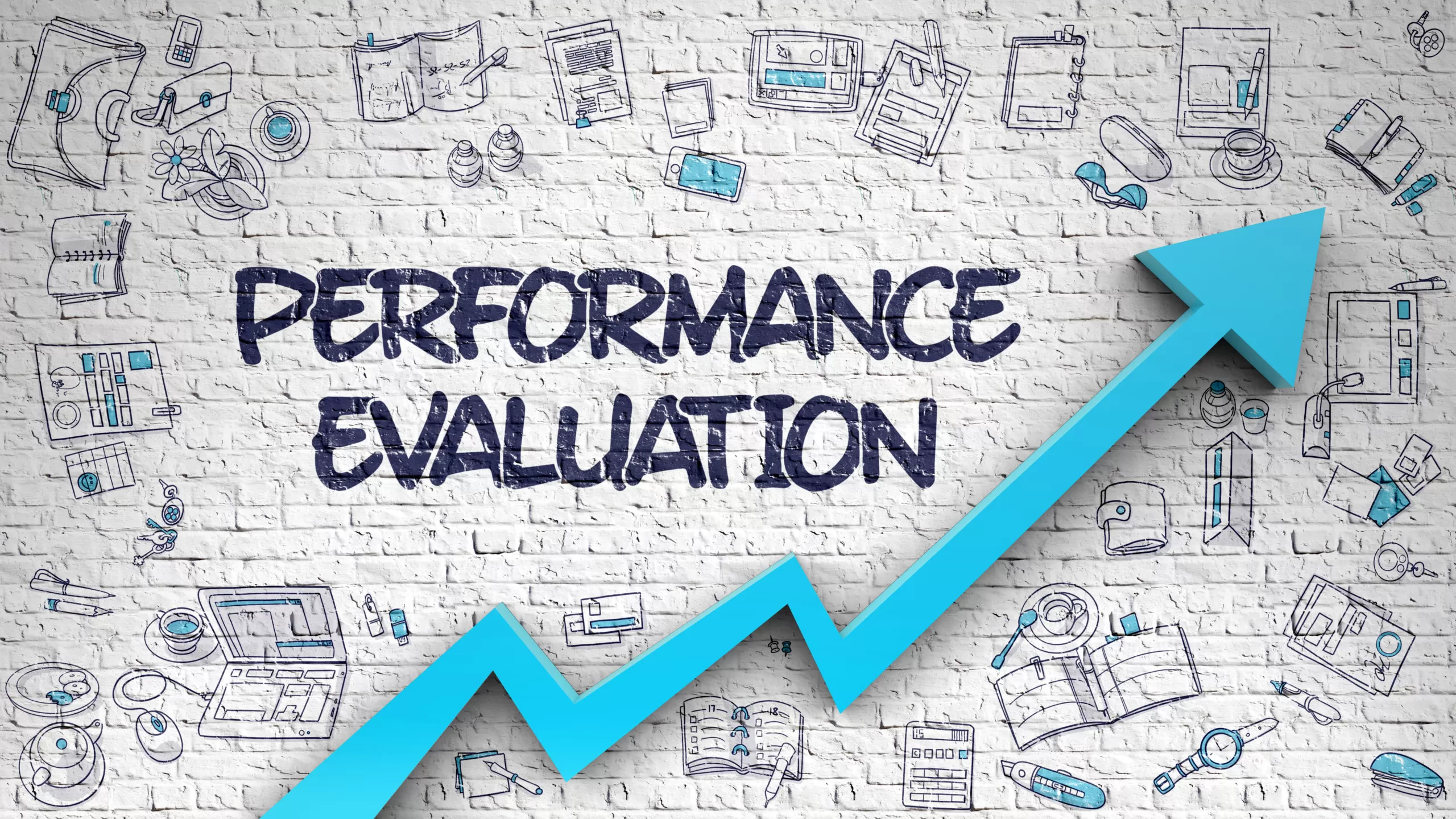Many employees sweat their annual employee performance review, but such feedback opportunities are necessary for improving the workplace and making progress in personal and work-related goals and relationships. Performance evaluations, though sometimes nerve-wracking for employees and even bosses, can be helpful tools if used properly.
Below, you’ll find tips to help you and your team to get the most from your reviews — and maybe even dread them a bit less next time.
What Is the Purpose of an Employee Performance Evaluation?
An employee performance review is a unique opportunity to build trusting relationships and have granular conversations with employees with whom you may not normally engage. In these reviews, you can talk to individuals about their job performance, ideas, and qualms, and more to get a pulse on how things are going for the person and for his or her departments. Keep in mind that this is not a meeting to fix a problematic employee’s behavior, as the ongoing nature of this kind of problem can’t be fixed with a one-time employee review.
Employers typically use performance evaluations to:
- Provide detailed feedback about an employee’s job performance
- Compare current job performance to historical performance
- Review the employee’s annual goals and whether or not they have been achieved
- Hear the employee’s feedback about managers and the company as a whole
- Discuss an employees strengths and weaknesses and propose improvements
- Make decisions pertaining to layoffs, raises, and/or promotions
- Promote stronger relationships between the employee and their team members/managers
What to Discuss in a Job Performance Review
No two performance evaluations will ever be the same; every person has unique needs, so the topics of your conversation will depend on the employee you’re reviewing. There are some general items you should discuss in every employee’s annual review, though, which include:
- The person’s achievements throughout the year
- Any data used to track and measure the person’s performance
- The employee’s behavior at work, whether good or bad
- His or her satisfaction with the company and current position
- The individual’s goals and ambitions for the future
- Any feedback they may have for managers or the business
- Ways in which you can help the employee
For the most part, try to let your employee lead the conversation and allow it the conversation to lead you where it needs to go. While it may feel counterproductive to discuss an employee’s personal life, for example, having these insights may explain why a struggling employee has performed poorly and make it easier to propose solutions to their performance issues.
How to Prepare for an Employee’s Annual Review
Give yourself sufficient time to prepare for an annual review so it can be as productive as possible. First and foremost, prepare a self-evaluation for your employee to complete beforehand so they can give themselves an initial performance rating. As a manager, you’re not always involved with the individual’s day-to-day tasks and they may bring up achievements and wins of which you were not even aware.
In addition to the self-evaluation, create a list of questions to ask the person, whether they be follow-up questions from the last review or general questions about his or her happiness at the company. If you aren’t the direct report of the employee, sync up with the manager to find out from their point of view how things are going. They can give you some great discussion points and questions to lead the conversation.
As part of your preparations, it may also be helpful to take a look at some of the employee’s most recent work; it’s always easier for people to talk about work that’s fresh in their minds, and a person’s most recent work is arguably the best reflection of how the employee is currently doing.
Finally, take some time to write down what the employee has been doing well. Make note of some constructive criticisms along with ideas for improvement, and leave plenty of time for discussing the future. Assessing the past is one way to foster learning, but you can achieve much more by focusing on goals and plans that will ensure that the employee does well in the days to come.
Nine Tips for a Successful Employee Performance Review
1. Prepare a Consistent Evaluation Format
The success of your performance review depends on the preparation of the manager and employee as well as the structure of the meeting itself. A well-formatted employee review template can make sure both parties are prepared and that they stick to the agenda without getting sidetracked and wasting valuable time. A template with room for note-taking can also make it easier to pass your meeting notes to those who couldn’t be there and allow for more efficient record-keeping and reflection for future reviews.
2. Solicit Feedback From the Employee
Employers regularly make the common mistake of doing all the talking without allowing the employee to respond or share their thoughts throughout the discussion. When you listen, you not only gain a lot of respect from the person you’re speaking to; you also get to walk away from the review feeling like you know the person a lot better. Reviews are more productive when you solicit feedback in the form of a report, a brainstorm, or an open-discussion format, allowing the person to share whatever they want to.
3. Ask Questions That Benefit the Employee
As a manager, one of your main goals in an employee performance review should be to help your employee improve and make their life better at work. If you want to succeed in those endeavors, you have to ask the right questions and make the person feel cared about. Consider the following as ways to break the ice and set the tone for a supportive and constructive meeting:
- How are you doing? (An obvious question that is surprisingly not always asked)
- What can I do to help you enjoy your job more?
- Do you feel that you have enough support to do your job well?
- What strengths do you have that you feel we may be underutilizing as a company?
- What is your favorite and least favorite part of your job?
- How do you prefer to receive feedback?
- What motivates you to do great work?
4. Utilize HRIS Performance Tracking Options
If you have HR software, you likely have access to performance tracking options. This helpful feature may allow you, your managers, and your HR professionals to attach notes to employee files regarding performance, attendance issues, any feedback that has been given, and relevant KPIs. Attaching this information to employee files in the database can help you to generate more accurate evaluations.
5. Plan and Schedule Employee Performance Review Meetings
Performance review meetings are often given at a moment’s notice, arranged at the last second before they are due. There is value in informing employees of when their meeting will take place and what the meeting will entail. Letting people know exactly when they can expect their review and giving them an idea of what the meeting will be about can reduce the associated anxiety and improve the effectiveness of the meeting.
6. Don’t Just Lecture — Have a Conversation
A performance evaluation meeting is an excellent opportunity for you to find out what your employees’ goals, ideas, and pet peeves are. In some cases, you may glean insights into what your development plan for employees should be; in other cases, you may learn valuable information that can help you improve your operation. Take the time to listen as well as speak.
7. Create Action Plans
Creating an action plan based on the performance evaluation is a way to shift the focus of a performance meeting from the past to the present and future. A good action plan will take elements of the performance evaluation into consideration and specify dates for different goals.
Action plans should be created for employees and also the managers giving the evaluations. Manager goals may include following up with employees on their goals and addressing various operational issues that employees have specified.
8. Follow Up Faithfully
When you forget to follow up with the items discussed during the review, you immediately reduce the effectiveness of your performance evaluations . It’s easy to get sucked into daily operations and miss follow-up deadlines, so set an alert through your HR software, or by some other means, to make sure that the date is highlighted. Following up with goals and other issues will help to ensure that everyone takes the evaluations seriously.
Performance evaluations generally don’t need a major overhaul; simple alterations such as these will help to increase their effectiveness and make everyone more optimistic about the process itself. Regularly discussing employee performance in more informal settings will also help to dial down the apprehension surrounding evaluations, as employees are clearly informed on what they should expect.












